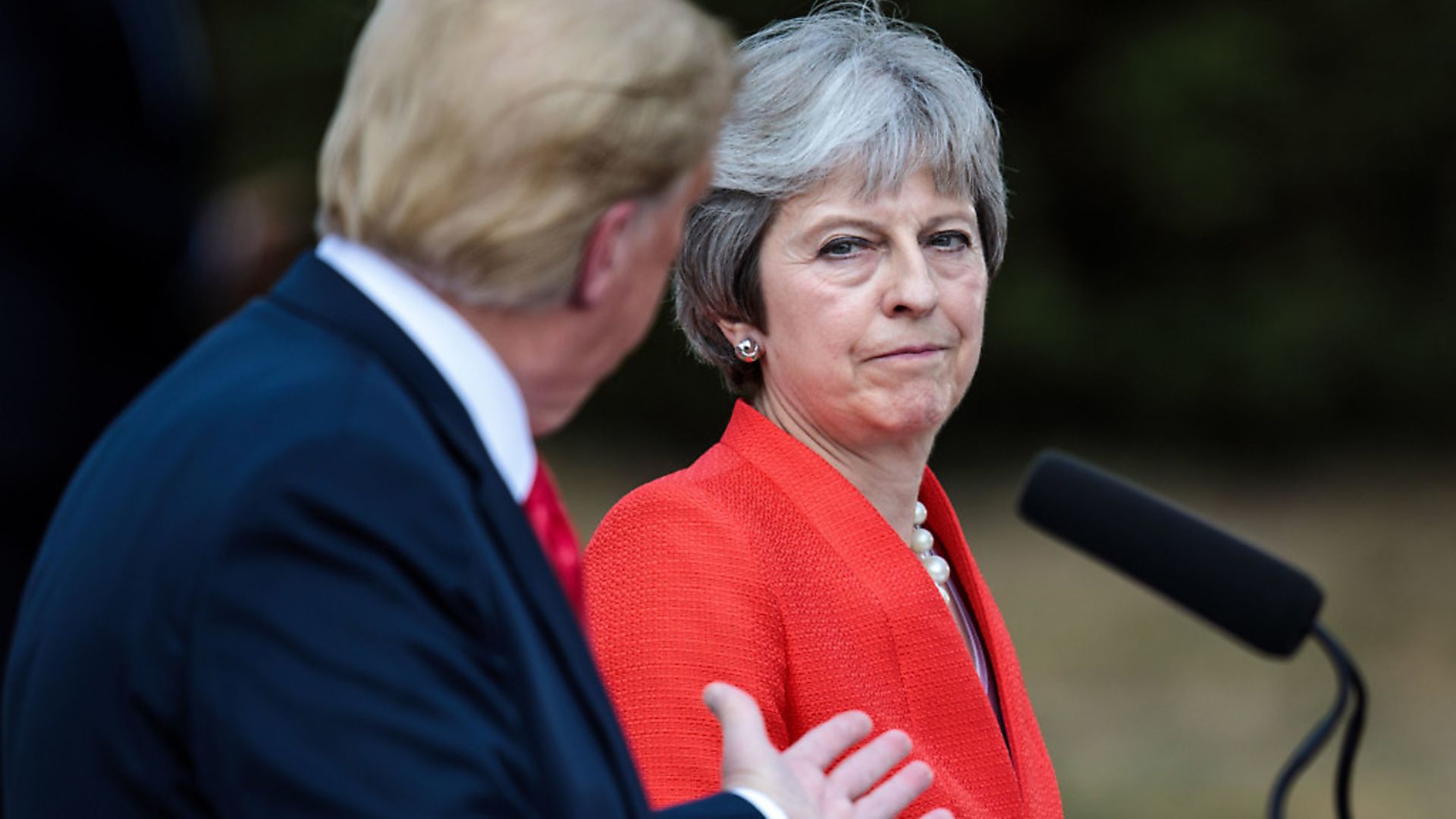
Why Brexit Britain faces a dystopian fate if it turns from the EU to America.
For all Brexiteers’ bluster about sovereignty, three global free trade zones predominate: China’s, with 1.4 billion people and the half-billion each of the European Economic Area and North American Free Trade Association. China represents about one-sixth of world GDP; NAFTA and the EEA roughly a third apiece.
Other blocs exist, from the decades-old Latin American Free Trade Association comprising 13 nations, to the Comprehensive and Progressive Agreement for Trans-Pacific Partnership, recently ratified by Australia, Canada, Japan, Mexico, New Zealand, Singapore and Vietnam, following the withdrawal of the US. But these are less ambitious, integrated and comprehensive than the big three.
Contrary to nationalist exceptionalism, evoking Britain’s brief 1940s isolation, the UK’s economy occupies a small space in a vast worldwide arena. With 1% of the world’s population, the UK accounts for 3.9% of the international economy, less than Japan’s 5.9% or Germany’s 4.5% and dwarfed by the giant three, World Bank data reveals.
In fact half of the UK’s external trade is conducted with the EEA: our closest, largest and most integrated market and any exit from that market entails placing the UK’s economy behind a wall of tariffs and customs checks. As British goods, services and agricultural products faced a self-imposed protectionist wall, driving up prices for consumers of imported goods from this market and those of exporters to Europe’s single market, living standards would be cut, requiring expanding trade elsewhere to try to compensate. But the Brexiteers’ proposed solution would not repair this damage.
Brexit cheerleader and MEP Dan Hannan recently registered the Initiative for Free Trade in the UK as a charity with the expressed purpose of explaining how American trade could plug the gaping gap left by Brexit. Hannan assembled an octet of transatlantic fellow travellers, including UK think tanks the Institute of Economic Affairs, Adam Smith Institute and Politeia; and the American Cato Institute, Heritage Foundation, Competitive Enterprise Institute, Mercatus Center and Manhattan Institute, publishing a report last year.
Complementary lobbying is provided by Trump-appointed US ambassador to the UK Woody Johnson, scion of the Johnson & Johnson pharmaceutical giant family firm, owner of the New York Jets and prodigious Trump 2016 fundraiser. Johnson took to the pages of the Brexiteer Barclay brothers-owned press urging a UK exit from what he not-so-diplomatically called the EU’s ‘museum of agriculture’, dismissing as ‘scare stories’ UK media reports of US chlorine-soaked chicken and hormone-injected beef. Johnson defended chlorinated chicken wash as ‘a public safety no-brainer’ and cattle growth hormones for producing more meat at lower cost.
The ambassador was rebuffed by the National Farmers’ Union saying while chlorine-soaked chicken was ‘safe’ to eat it was made necessary by lower US standards. US poultry farms are not required to fit windows in their sheds or clean them between flocks.
Worse, by attempting to cover losses in the half of UK trade that is European in a bid to expand American trade, which accounts for only 11% of UK imports and 19% of exports annually, British consumers and businesses would be exposed to a less regulated but more protectionist market.
Pressure from the big-six politically-powerful US drug company giants, including Johnson & Johnson, would try to force high-priced American drugs into the UK market from a cartelised industry that spends a fortune opposing Canadian drug price controls. The NHS, which uses its sizeable purchasing power to keep UK prescription prices low, could expect similar intensive lobbying.
British firms would also face companies with fewer regulatory requirements, risking hard-won European-wide safety regulation while UK firms would compete against the lower prices that lighter regulation enables. Meanwhile, UK enterprises would struggle to access such American markets as federal, state and local government procurement that are strongly sheltered from foreign bidding.
Substituting the ‘America First’ nationalism of the US president for the transatlantic partnership of America and Europe as equals on the world stage, UK Brexiteers reject the free movement of goods, services, capital and people enshrined in EU law. Spurning the vision of their former intellectual guiding light, free market economist F.A. Hayek’s 1944 advocacy of a ‘superior political power which can hold the economic interests in check and in the conflict between them can truly hold the scales’, Brexiteers instead embrace the less-than-special relationship of the ‘Airstrip One’ dystopia of socialist George Orwell’s 1949 warning.









